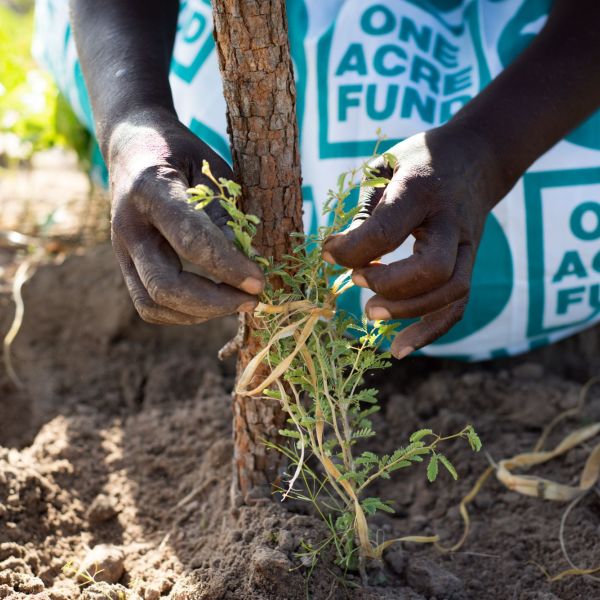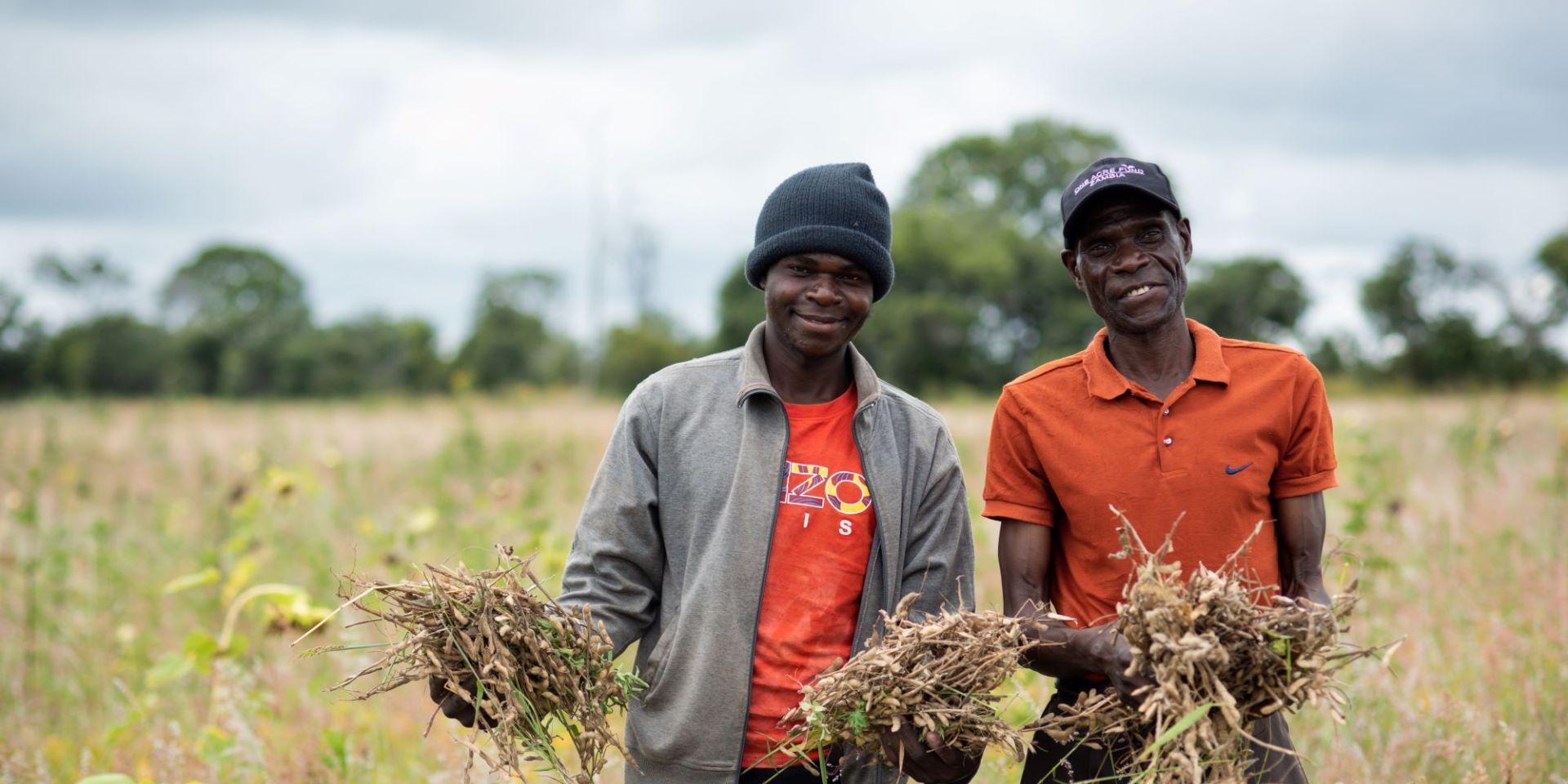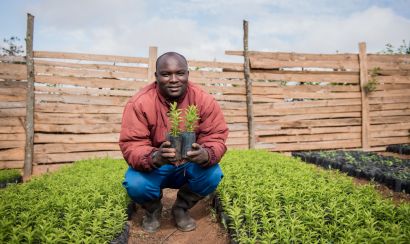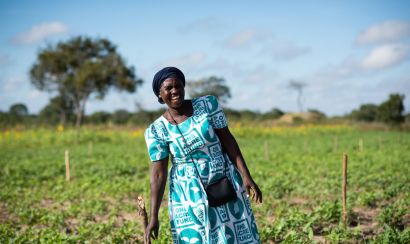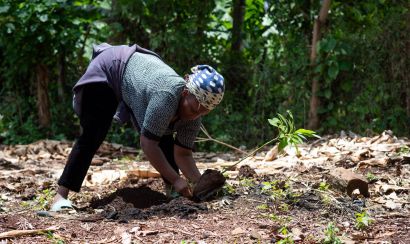Friday Ndashe: Planting trees and growing futures in Zambia
Trees play a critical role in mitigating the effects of climate change. That’s why we’re committed to not only supporting smallholder farmers in planting trees on their land but also setting up tree nurseries to supply local communities with tree seedlings. These nurseries are often locally run, providing smallholders – like Friday Ndashe in Zambia – with the opportunity to make more income while supporting their neighbors in the fight against the impacts of climate change. Every tree grown and planted is so much #MoreThanATree.
For Friday Ndashe, who manages a tree nursery close to Kabwe in Zambia, running a tree nursery is a “joyful endeavor” with many benefits. Friday grows Musangu (Faidherbia albida), a local species that has many benefits to farmers.
“As a farmer, I understand why trees on farms are important,” says Friday.

“Trees, particularly Musangu, increase soil structure and fertility and absorb excess atmospheric carbon dioxide. Improving farm productivity and mitigating climate change are important to me as a farmer. Moreover, selling tree seedlings to other farmers allows me to earn extra money to look after my family. I would like to keep planting trees, including fruit trees in the future, to expand my income and to help look after the environment.”
Improving farm productivity through tree nurseries
Our tree program actively supports farmers like Friday in setting up their nurseries – from acquiring the seeds they need to get started to providing training on growing the tree seedlings, and how to plant them successfully to advising on managing a nursery. We also provide support on sales, supporting the managers to sell their seedlings.
In 2023, tree nursery managers, like Friday, supported 4,300 Zambian smallholders in planting 1.4 million trees on 4,200 hectares of farmland!
That’s the largest number of trees we’ve grown in a single year since we set up our tree program in Zambia in October 2021—and brings the total planted trees to over 1.8 million. In Central Province, where most of our work in Zambia is concentrated, we support over 90 tree nurseries.
‘Leave a valuable legacy’
Besides their value to farming, these trees provide another source of income for Zambian smallholders via payments for keeping the trees alive as part of our carbon credit work. For every year the farmers keep the trees alive they receive payments - from years 1-3 these are payments for tree survival and from year 4+ farmers will start receiving payments (otherwise known as carbon credits) for the growth of their trees and the contribution they make to capturing and storing carbon in the soil.
As a nursery manager, Friday sells seedlings from his nursery to his neighbors to plant on their farms. As a farmer himself, he also grows a portion of the seedlings he produces on his farm, enjoying the environmental benefits they offer.
“Not only do I earn from this endeavor, but the trees I have planted on my farm provide reassurance for the future through anticipated carbon payments,” Friday says.
“As I grow older, I find solace in these trees enabling me to leave a valuable legacy for my family. I have already invested some of my earnings in livestock – I bought a goat that has given birth to two kids.”
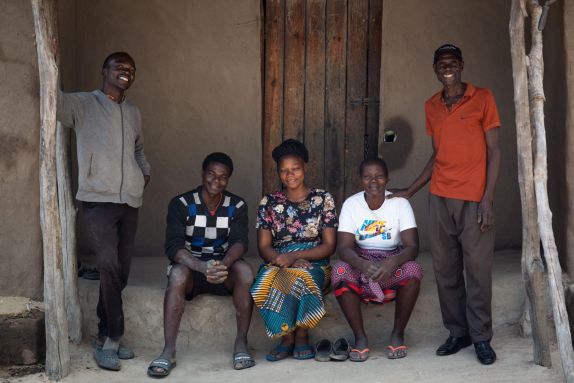
In the short term, participating farmers across all our country programs will receive yearly payments just for keeping the trees on their farms in the initial years. Once the trees are established in the soil – from Year 4 onwards – the farmers will be paid based on the number of surviving trees on their farms and the amount of carbon they absorb or store. Instructively, the bigger the trees get, the more carbon they absorb, and the more money farmers earn.
Strengthen climate resilience
Trees are an essential part of our work to strengthen the climate resilience of smallholder farmers. When farmed alongside food crops, trees play a complementary role in improving soil health, and increasing harvests. When done as a partnership between organizations like ours and farmers, tree nurseries enhance the supply of tree seedlings, ensuring that more smallholder farmers can benefit.
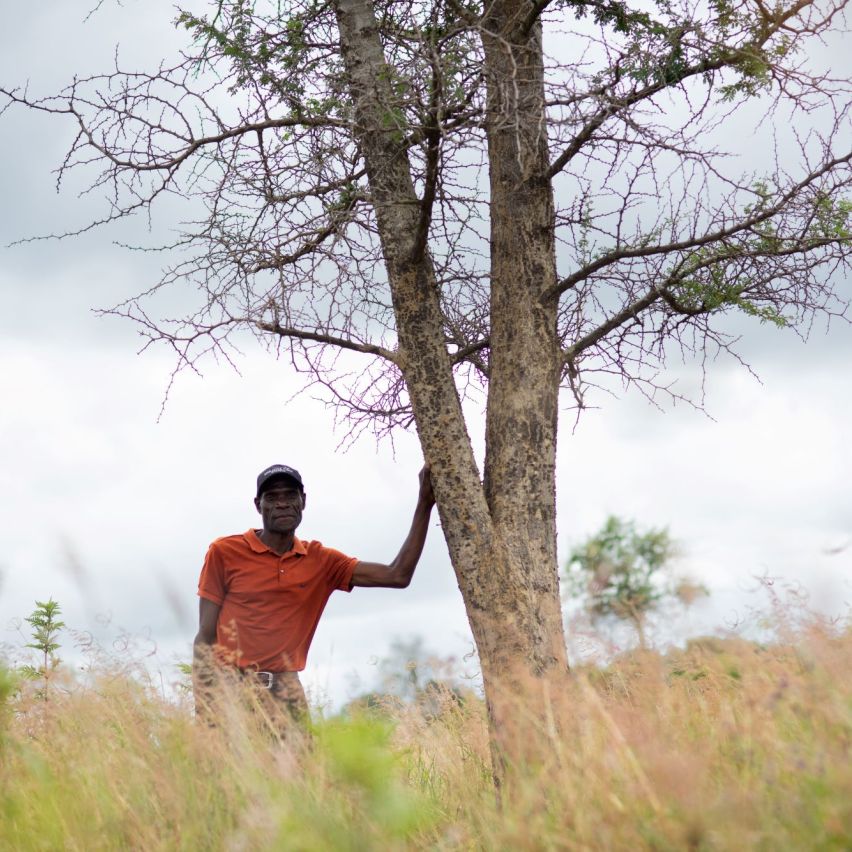
“Agroforestry is good for the environment because different plants help one another to thrive. If we recreate and preserve forests, we can ensure healthy soils and good harvests.”
Plant 50 trees today!
Just $10 will support a farmer to plant 50 trees. Your investment in our farmer-led tree planting initiative will help improve the lives of farmers like Friday today!
